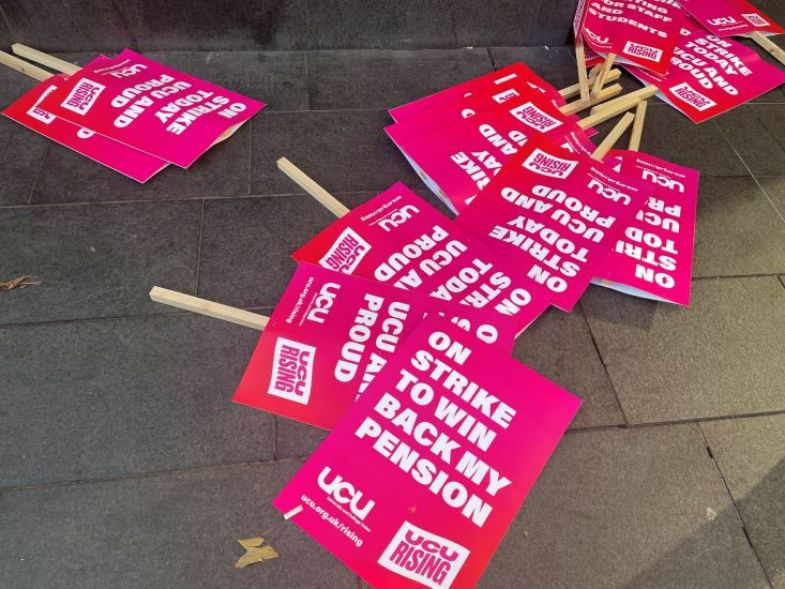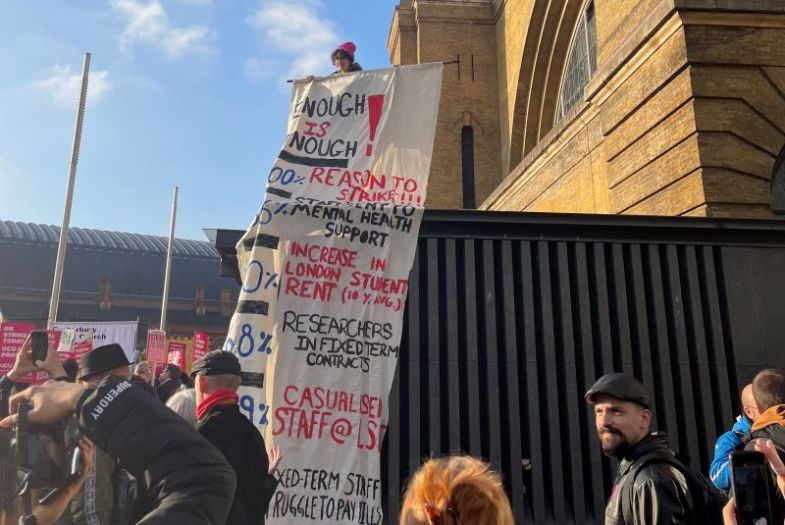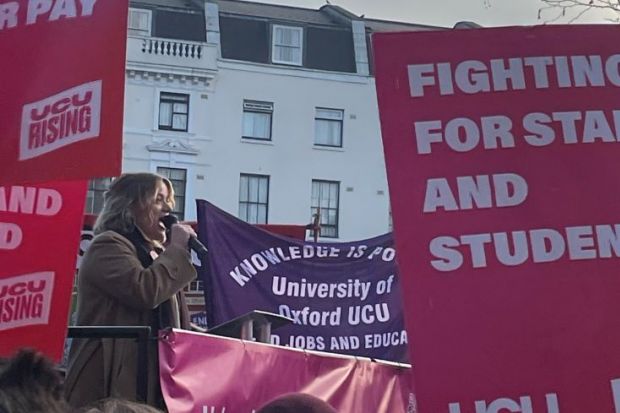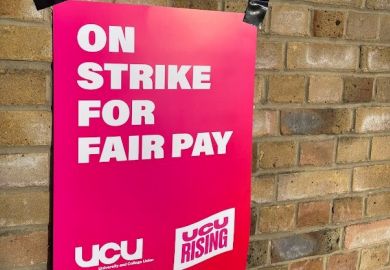Workers have learned that you have got to stand up to make yourself heard, Mick Lynch has told UK university staff on the third day of strike action across the sector.
Speaking to Times Higher Education at a rally in London, the National Union of Rail, Maritime and Transport Workers general secretary – who has been a constant figure on the airwaves while his own union has been embroiled in industrial action for the past six months – said those who were passive in the face of “aggressive” employers were “going to get crushed”.
“They are just going to run all over you which is what they have been doing for too long frankly, in all workplaces,” he said.
Asked what linked his union’s battle with that of the University and College Union – which has led up to 70,000 members at 150 universities out on strike as part of calls for more pay and better conditions – Mr Lynch said that all the disputes were about funding and employers “trying to make people poorer – whether you are an education worker or a rail worker or a postie”.
“There’s a lot in common in all these debates. We are challenging the paradigm – as the posh people call it – the way society is set up and the way we are being treated,” he said.
“We have been pushed from pillar to post and casualised at work. People are starting to wake up to this super-exploitation and the callousness of employers and that is good for everyone, if we resist it.”
Mr Lynch called for university leaders to return to the negotiating table just as his own union prepared for more strikes after failing to agree a new deal on pay.
“Get back round the table and let’s get a deal on; treat your people with respect and let them make a decent living,” he said, when asked what his message was to vice-chancellors.

The current strikes are the first sector-wide walkouts in recent years and Jo Grady, UCU’s general secretary, claimed employers were now beginning to bend to pressure.
UCU negotiators – alongside representatives from other higher education unions who are also on strike – were set to meet with the University and Colleges Employers Association (Ucea) as the strikes took place to discuss plans to bring forward the 2023-24 pay negotiations.
Ucea – which has claimed the strikes’ impact have so far been “low and isolated” – stressed the meeting had been planned months in advance and formed no part of the annual pay round. Its leaders have previously said that the sector needs more funding before it can go further on pay.
But Dr Grady said employers “need to realise that this problem they kept hoping would go away will not go away” and said the entire union being out had resulted in a “very different situation”.
“They’ve got the money to solve the problem; they need to spend some of that on fixing the issues rather than ignoring them and threatening staff and intimidating them when they don’t comply,” she added.
Considering what a potential deal could look like, Dr Grady said staff had already “compromised loads” but understood that some of the things they are asking for – such as action on gender and ethnicity pay gaps – “won’t be delivered tomorrow”. However, she wanted a guarantee from employers that “they are committed to dealing with these issues with us”.

Among those joining the rally outside King’s Cross station was Emma Battell Lowman, a research associate at the University of Leicester and a member of UCU’s higher education committee.
She said she was “sick of excellent people being forced out of the university systems because they don’t have family money to hang on and deal with terrible employment conditions”.
Being a union representative had showed her “exactly how bad things are” but she said she was hopeful things were going to get better.
“Something is changing in this country and we are absolutely a part of it,” she said. “Today we show the power of our unity to employers. They have never seen 150 universities out on strike together. They have not seen this level of pressure before.”
Jared Finnegan, a lecturer in politics at UCL, said his primary motivation for striking was to protect his pension – provided by the Universities Superannuation Scheme, which according to a recent monitoring report now boasts a surplus in excess of £5 billion, just months after cuts to members’ benefits were implemented amid fears of a multibillion-pound deficit.
He said he was “not against finding compromises” but employers did not seem prepared to reverse their position, which he felt was “increasingly untenable”.
Colleagues who were on the fence last year about participating in strike action all seemed to be on strike this time around, he said, and added that he believed the union would keep “ratcheting up the pressure”.
Register to continue
Why register?
- Registration is free and only takes a moment
- Once registered, you can read 3 articles a month
- Sign up for our newsletter
Subscribe
Or subscribe for unlimited access to:
- Unlimited access to news, views, insights & reviews
- Digital editions
- Digital access to THE’s university and college rankings analysis
Already registered or a current subscriber? Login








